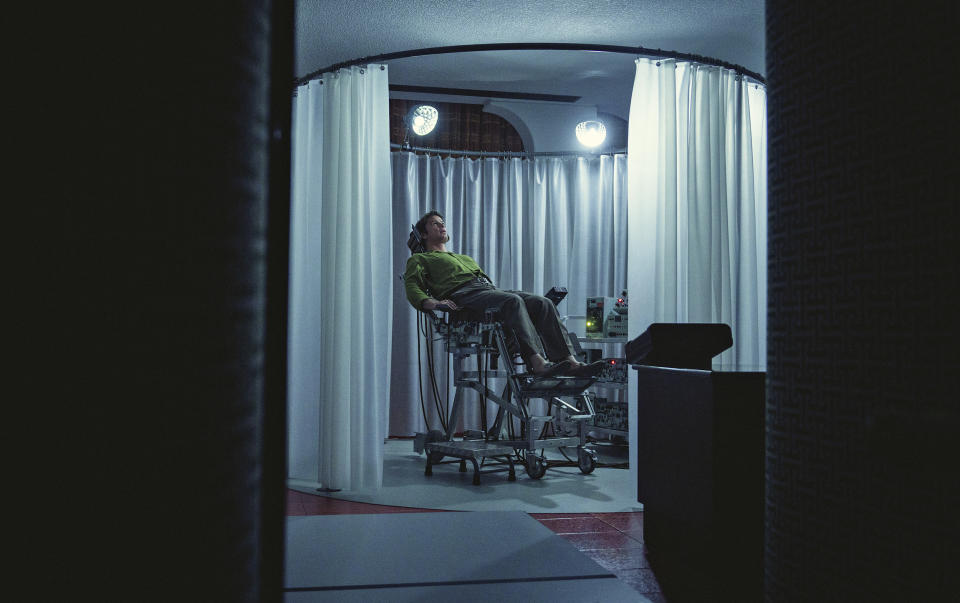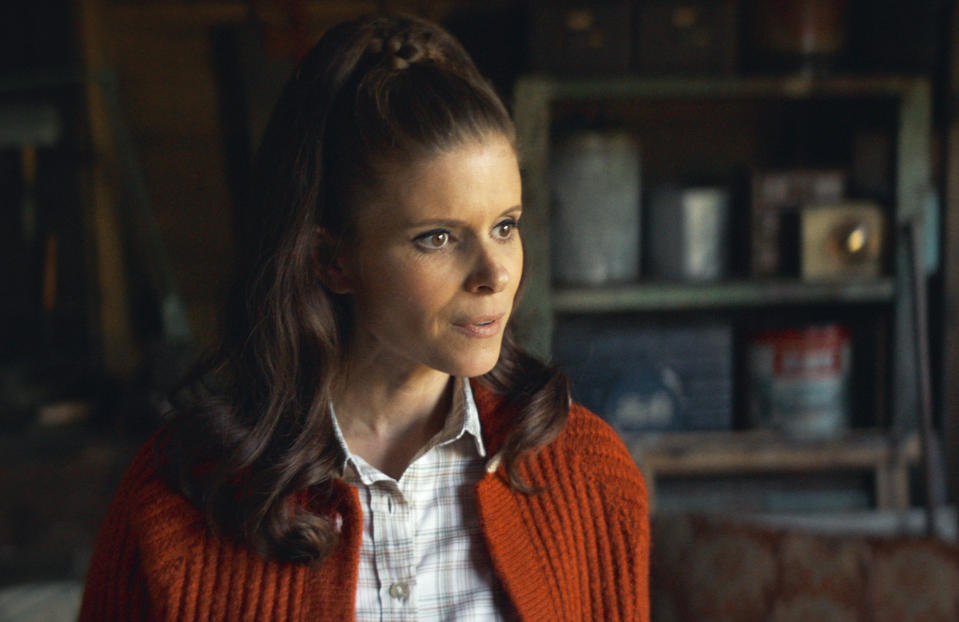'Beyond the Sea' ending: 'Black Mirror' star Josh Hartnett explains David's choice
- Oops!Something went wrong.Please try again later.
- Oops!Something went wrong.Please try again later.
Warning: This story contains spoilers for the “Black Mirror” episode “Beyond The Sea.”
“Beyond the Sea” is one of the most devastating episodes in "Black Mirror's" oeuvre — and you're about to find out why.
In an alternative version of 1969, Cliff Stanfield (Aaron Paul) and David Ross (Josh Hartnett), are two astronauts currently in their second year of a critical six-year space mission.
Paul and Hartnett’s characters physically are in space. But their consciousnesses are still down on Earth, transported into replacement bodies called replicas through a technology called a "link." That means they can be in space without ever leaving (the song "Rocketman" does not apply to this situation).

Down on Earth, David has the perfect life: a nice home in the suburbs, a loving wife, two kids, and fans who adore him. Meanwhile, Cliff lives on an isolated farmhouse on the outskirts of a small town. Cliff and his wife, Lana (Kate Mara), barely connect. He has a similarly strained relationship with his quiet son, Henry.
David’s idyllic life is shattered when a cult leader, Kappa (Rory Culkin), and his followers break into his house. He's forced to watch them brutally murder his entire family and destroy his replica because “defying nature must have a cost,” referring to the existence of said replicas.
This leaves David back in his body, trapped in space.
David, lost and grieving, becomes a shell of himself after his family dies. He spends most of his days eating, running on a treadmill and gazing out at the emptiness of space. At one point, David seems like he is about to open the airlock and throw himself out of their ship.
Lana suggests that Cliff offer his link so David use his replica and get a break from space, even just for an hour. Cliff is hesitant, but offers this to David. He takes them up on it.
David comes down on earth for an hour a week, sometimes longer. Then, he falls for Lana, and the feeling is reciprocated. Once Cliff learns of their connection, he forbids David from using his link and visiting his wife.
How does 'Beyond the Sea' end?
David tricks Cliff into thinking there's something wrong with the ship. In order to check, Cliff has to remove his link.
When Cliff discovers nothing is wrong, he knows he's been tricked. Eventually, David opens the hatch and lets Cliff back inside. David reluctantly returns Cliff's tag, which will bring him back to Earth.
Cliff is shocked to find what awaits him back on Earth. David had used Cliff's replica to murder Cliff's entire family, leaving both men lost in the desolateness of space.

Josh Hartnett and Kate Mara give their take on the ending of 'Beyond the Sea'
The episode's stars say they were as astonished as you probably were when watching the episode.
"We want people to feel (surprised)," Mara tells TODAY.com “I felt that way when I read the script as well. I didn’t did not expect that outcome.”
“I definitely felt it was going one direction, and then it decided to go different,” Hartnett tells TODAY.com. “And then afterward, I had to figure out the logic of it, from David’s perspective, and it makes more sense the way that it is.
Hartnett says he didn't see another option for his troubled protagonist.
“And it’s sad, but what was the other option?... I mean, it could have been self-inflicted harm. But that would have been have been (a case of) David killing Cliff as well. I mean, he’s stuck between a rock and a hard place here. It might have been his only option.”
Hartnett says he wanted to make sure the audience understood David and tried to play his character as "humanly as possible."
“My job was to make sure that people understood that this was a human being in this situation and it wasn’t a story of somebody evil who’s doing something evil. Because that’s just too boring, right? It’s more like, this guy has gone through a trauma and he is in this extraordinary situation,” Hartnett says.
“And Charlie (Brooker) wrote this during lockdown as a sort of reaction to his feelings of lockdown ... So I kind of like felt like an obligation to play the character as humanly as possible. It’s not like I’m trying to bring people to a dark place with it, but I really want people to understand where it’s coming from. Otherwise, it’s just some random act of violence, which is much less scary.”
This article was originally published on TODAY.com

